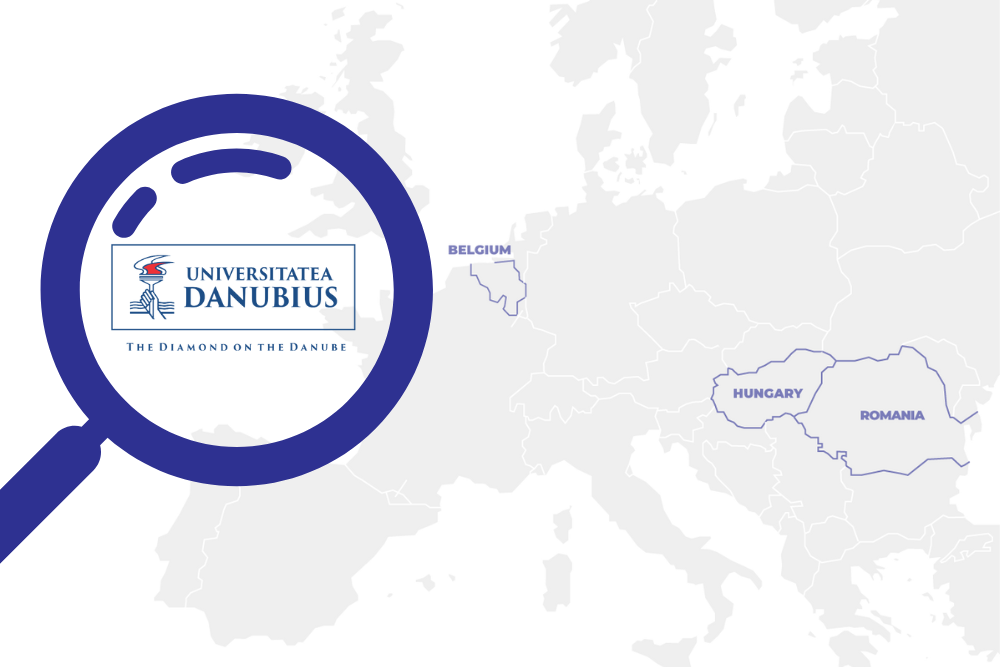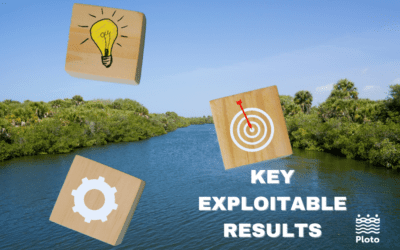The Danubius University of Galati (UDG) recently shared its experience working on the PLOTO project, where they are a core member of the Romanian pilot site. UDG works alongside consortium members Galati Lower Danube River Administration (AFDJ) and the Romanian River Transport Cluster (RRT) in the pilot site located in the Danube area, working on the implementation of gauge network monitoring system, water level monitoring, acquisition and forecast systems, calamity abatement related systems and procedures.
What prompted your organisation to join the PLOTO consortium?
Danubius University is recognised in the Black Sea and Baltic Sea as an international university of excellence, an open and stimulating environment for personal and entrepreneurial development and the constant exchange of ideas and values. PLOTO consortium represented an opportunity to develop our scientific research in the inland waterways infrastructure field at the international level.
How do the objectives of PLOTO project fit in with the priorities and strategies of your company?
PLOTO will allow Danubius University to work closely with industry and countries involved to support partnerships in critical sectors such as IWW transport. The R&D results will be exploited by Danubius University’s students and the research team and will be made available to the scientific community and to the relevant stakeholders. PLOTO is vital to leveraging public and private collaboration to foster the implementation of new technologies and sustainable innovations and spread successful new resilient solutions across Europe and the world.
Tell us about the role of your company in this project
Danubius University has a fundamental role in the relationship with the main authorities involved in the Danube’s infrastructure development, acting as catalyst for the Romanian River Transport Cluster. PLOTO represented an opportunity to design a common operational picture and use our scientific research potential in developing an incident management system. Our central role is to offer consultancy, training, socio-economic or impact studies, and innovative business solutions related to our experience in the inland waterways field.
Can you give an update about the latest developments?
Based on the specific research related to the resilience of the Inland Waterways (IWW) infrastructures and the connected land infrastructures, the researchers from Danubius University will concentrate their effort on working on different types of analyses related to this field. We will connect the objectives and outcomes with all Danubius University’s projects. Our projects are reunited through an ecosystem of integral innovation. The 18th edition of “European Integration Realities and Perspectives” Conference, one of the most important international conferences organised by Danubius University, will be on 19- 20 of May this year. This annual Conference aims to provide a forum for exchanging ideas, research outcomes, business cases, and technical achievements. The activities developed through PLOTO and the results will be disseminated at this event.
What are your company’s next steps in the project, in relation to the pilot site?
The role of Danubius University in the pilot site is to conduct socioeconomic studies, co-definition of research and market needs, business consultancy, training, and research dissemination. Climate parameters analyses will also be developed to measure the impact of climate change. It is intended to adapt solutions and modify design parameters or include additional ones to achieve the desired IWW and connected infrastructure applicability. Based on the specific features of the investigated solutions and the related characterisation/customisation needs, the work can go through the pre-identified solutions’ re-design, mid-scale implementation, testing, and evaluation. The first step will be to re-design the selected solutions, enhancing and customising them to adapt their application to the PLOTO context.
What are your plans to build upon these results for future initiatives?
Danubius University has an essential entrepreneurial approach. At least at the national level, our primary purpose is to acquire a modern business environment where flexibility, new technologies, access to international markets, and continuous exploration of new areas are the pillars for future research. This essential goal can be achieved through our research centres: Centre for Hermeneutics “Symbols and Texts” (CHeST), Research Centre on Socio-Economic Dynamics in Sustainable Development (DiSEDD), and Research Centre “Theoretical and Applied Economics”.
Would you like to add anything more?
Danubius University is honoured to be part of this project consortium and the opportunity to increase our scientific research potential, disseminate results at the international level. We believe in a sustainable collaboration based on our values: truth, responsibility, respect, innovation and excellence.



